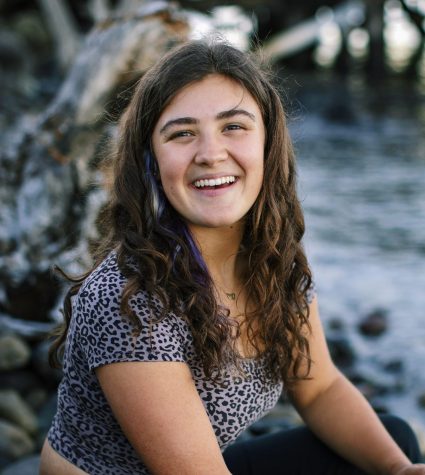District Policy

What are the classroom rules set in place by the district?
Why are they there?
How does the staff and student body of PHS feel about them?
At the district level, there are policies set in place intended to maintain control and order in the classroom. The school district policies are grouped into six categories with the 2000s focused on the instructional side of the district and the 3000s being student focused. Students, teachers and administration alike seem to have varying opinions on what the advantages and disadvantages of those rules are.
Char Krause is the Director of Student Services for the school district and has been in this position for five years. She deals with the 3000s policies the most.
“School board policies are statements that set the purpose of the organization and the program at the district. School district policies enable the school board to effectively govern and set the direction of the district…They formalize the work of the district and how the work would be done,” Krause said.
Junior Lukas LaVergne is taking a number of Advanced Placement classes. He says he knows that each teacher has their own rules for the classroom, but he is not extremely aware of what the actual policy set by the district is.
“I know it’s largely decided by each teacher individually and it lacks a lot of uniformity. And it’s basically just decided by what the teacher prefers in our classroom. I don’t really know any district-wide policy except for retake policies and the basics like violence in the classroom,” LaVergne said.
LaVergne says he likes how teachers can control their classrooms, but not that some classes have differing regulations.
“Each student, as they go between class, has to think of what their teacher personally likes, which doesn’t really work very well considering you’re already thinking about all these other things in class where you have to remember the rules,” LaVergne said. “I do like the ability for teachers to personalize their classroom so there’s a happy medium somewhere.”
Jason Gregory has been teaching Spanish at PHS for the past four years and before that another six at a middle school. He knows that there are rules for teachers to follow and does just that, though sometimes he isn’t so keen on them.
“[For example] part of the grading policy is that we don’t give zeros for missing tests. I can see where that’s coming from. I’m not sure if I agree, but I do it but I know a lot of my colleagues don’t follow that and it’s frustrating [for] me,” Gregory said. “I’ve seen students of mine who are getting an F because they’ve been given a zero for a test they are missing, instead of the 40 percent like mandated by the district policy, so I think we need to have better communication about what the district policy is. I know a lot of teachers would really appreciate it if we had a say in forming district policy. I don’t know if that’s feasible or not. ”
Rachal Peart is in her 10th year teaching math at PHS. She has been in the education system for a total of 28 years. Peart is a strong advocate for each school creating its own set of rules and guidelines.
“I think we, at the buildings, should have control. I think each building has its own flavor of students and we know who we serve and what our purpose is. We should be trusted to do that and if there are individuals, like there would be in any industry that maybe aren’t then those people should have a conversation [about it],” Peart said.
LaVergne says he has noticed some conflict between the district and teachers. It’s evident in his day-to-day schedule.
“There are obviously problems between the district and the teachers sometimes. [Teachers don’t follow the rules] all the time,” LaVergne said.
The district doesn’t directly send out informational material on the policies but they do have all of their policies posted on the district website and are open for people to read.
“One way that students and teachers can know what the policies are is they can read them, which most people don’t sit and read policy but they’re there for anyone. They’re public [and] very transparent,” Krause said. “That’s just one general way that we make our policies available to everyone…and another way that people might know about policies, is that other publications have the policies in them are parts of policies like the Student Handbook the rights and responsibilities. That’s also a policy… Not every single policy warrants a special training, but really critical ones that people need to know about [can] have some kind of training piece [for teachers].”
Gregory feels that the teachers should know what the rules are that they have to follow. He also knows that they’re informed of the rules often because he has written some material used by teachers as a way to understand what’s in the policy.
“We receive an email every year from the district with the language of the policy so yes [it’s clear]. I know at PHS we also did an activity at the beginning of the [school] year where teachers took a Kahoot quiz on what’s in the district policy,” Gregory said.
Peart understands the district has good intentions when writing and enforcing the policy, but she feels that teachers know their students best and should do what is going to help them in the long run.
“I think the district tries to make policies clear to teachers and I think teachers who know what’s best for [their] students try to be professional and follow policies while still doing, ultimately what they’re charged with doing which is to help students learn and help them be ready for the next level. Sometimes those two things are in conflict,” Peart said.
Gregory realizes that some teachers aren’t as accepting of the guidelines set in place. He feels it’s more of a control issue.
“We teach because we are passionate about our subject area and we’re passionate about what’s going to [be] best for student growth and achievement. Teachers are used to being in charge and I think sometimes when we’re the ones who are told what to do, we don’t always follow directions when they’re told to us,” Gregory said. “Sometimes I think that they feel that they know better than the district policy when the district policy is not fair or not practicable and sometimes it feels like some of the policies are written without teacher input so that can be frustrating.”
Peart knows that teachers are aware of each student they have and should be responsible for helping their students whenever they need it. She wants teachers to be able to control how they go about that according to their own policy, not the district’s.
“Teachers should definitely have control in the classroom because we know our students best and we know how much we can push them, we know how much we need to do remedial remediation with them, we know how much we can get out of them and we know when to pull somebody aside and to do some extra work. We should be trusted [with that],” Peart said.
Peart wants students to be prepared for the “real world” where there aren’t always second chances or redos. She supports her students yet also pushes them to do their best.
“We’re also now creating a system that is teaching students to not to be ready the first time for anything. Like nothing is really due, there’s not a late day, those sort of things. Those aren’t life skills. We need our kids to be able to go to college or vocational school and actually pass classes. [The policy] should be graduated, depending on that level,” Peart said.
Gregory wants to give his students a taste of reality while also keeping things realistic. Though he doesn’t appreciate it when students abuse the opportunity to retake.
“The retake policy is [in place] because we’re trying to instill the idea that students success is always obtainable and we don’t always get it on the first try. People say that that’s not the real world but that’s not true, if you fail your drivers test, you can go take your drivers test again. I think sometimes kids use that as an excuse to not study or work hard the first time and just mess around until they see what the test is like, I don’t think that’s right either. I think the teachers need to do their part and continue to do their part,” Gregory said.
LaVergne wants his schedule to simulate classes he will take at the college level. He likes when his teachers have personal rules as well.
“I generally like the college-level retake [rules] and that the teachers can personalize how there’s rules about gum in class or cell phones in class,” LaVergne said.
Peart wants to support her students and give them the best chance of success in and outside of her classroom.
“I never think that a student should be out of the possibility of passing a class like in the first month of school or anything like that. Any teacher with a good heart wants their students to learn and they’re going to keep after it. Ultimately, sometimes that student just does not measure up and then that should be accepted and reflected because that’s part of life, sometimes failure is part of life and then we’re going to find a place to pick you back up and get you back in there,” Peart said.
Gregory wants whatever policy is set in place to be equal. He doesn’t want students to not have certain luxuries based on outside factors.
“There are teachers who aren’t allowing retakes. And then if there’s a parent who’s upset and is good at advocating for their child, then that child gets the policy but the parent who’s not as involved [and doesn’t] advocate for their child, then that’s not fair because I shouldn’t have to advocate constringently for my child in order to have that policy apply to them. It should be applied in all cases,” Gregory said.
There can be a variety of different reasons why teachers chose not to enforce policies. Krause knows that in rare cases, teachers just don’t want to follow a rule. She hopes that, that isn’t the case though.
“Some things are expectations but they’re actually not written in a policy. Policies don’t speak to every single thing, but say there is an expectation of staff that’s written in policy and people don’t follow it…Sometimes it’s because people don’t know that it’s a policy. Sometimes people think they’re following the policy but they aren’t because maybe they have a misunderstanding of what the policy says, and sometimes people might not, you know, always agree. And so they sometimes might not follow it because they don’t agree with it, but that’s rare. That could also be a reason why someone might not follow policy. They might philosophically not agree with a policy so they just don’t implement it in their work,” Krause said.
Peart wants the district to consider how students are being affected by the policies set in place. She wants her students to have the best chance of success in life and knows the district has a large say in that.
“The district is trying to apply one policy to many subgroups of people and that’s where the problems start happening. If you’re in an AP class we definitely should be college prep and the district has no right to be telling us to treat it like a remedial class. It devalues what we do in the classroom and students in the end are not being helped by it,” Peart said.

Christina Rhoades is a senior Staffer for the Viking Vanguard, and is the Print Editor. This is her second year on staff and loves it. Rhoades says...



